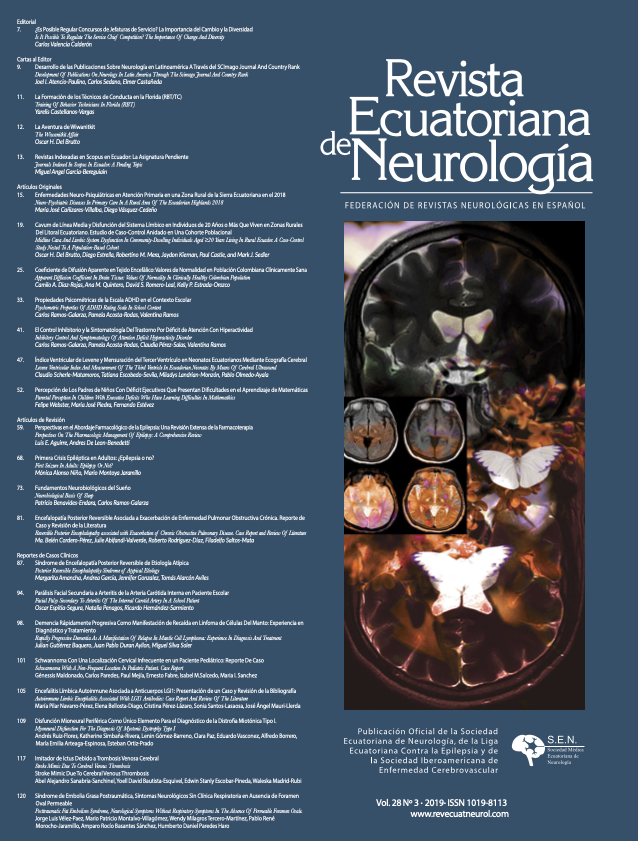Abstract
Background. Inhibitory control has been described as a factor causing difficulties in the regulation present in the ADHD.
Objective. The aim was to analyze the relationship between inhibitory control and symptoms of ADHD in a sample of 81 subjects diagnosed with ADHD (Mage=10.05, SD=2.53).
Methods. A quantitative, cross-sectional and correlational scope research was carried out. The instruments used were the ADHD RS IV and SIMON experiment. Correlation inferential statistical regression and regression processes were applied.
Results. Three regression models were tested, where inhibitory control presents a significant prediction with the (a) attention deficit F(1,79)=20.69, p=<.001, R2=.21, (b) hyperactivity and impulsivity F(1,79)=5.90, p=.01, R2=.07 and (c) the combination of both (a+b) F(1,79)=13.25, p=< .01, R2=.14.
Conclusions. The findings suggest that inhibitory control is one of the main executive functions that determines the degree of affectation of the symptomatology of the child population with ADHD.

